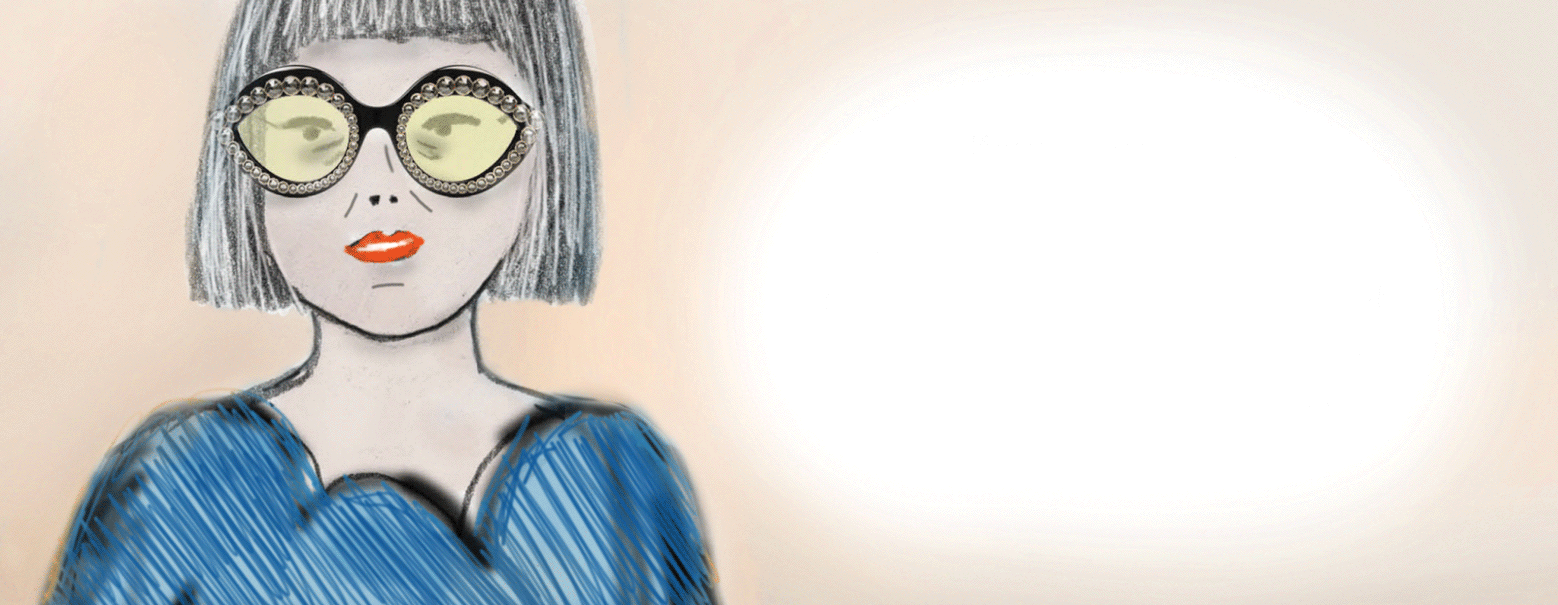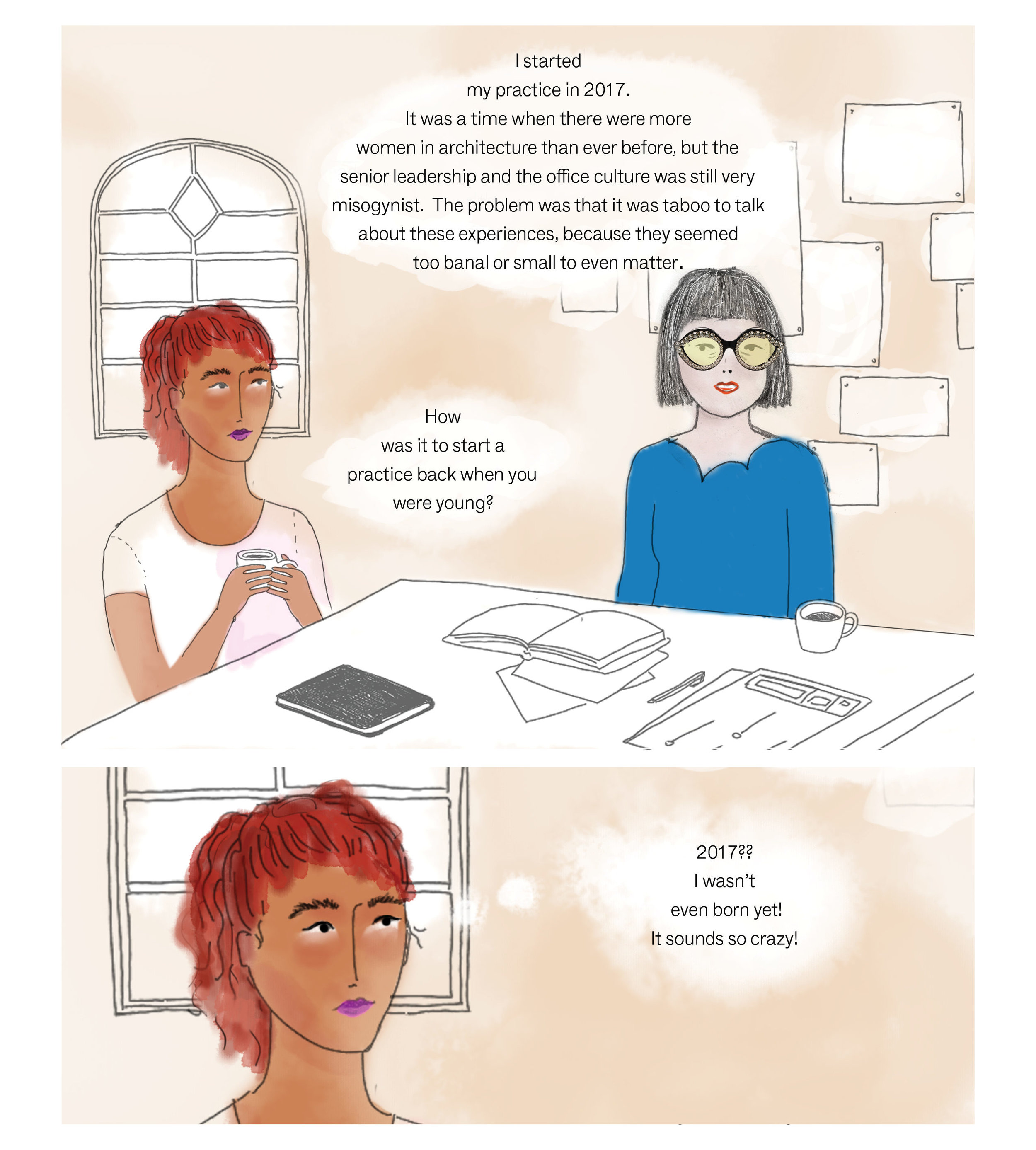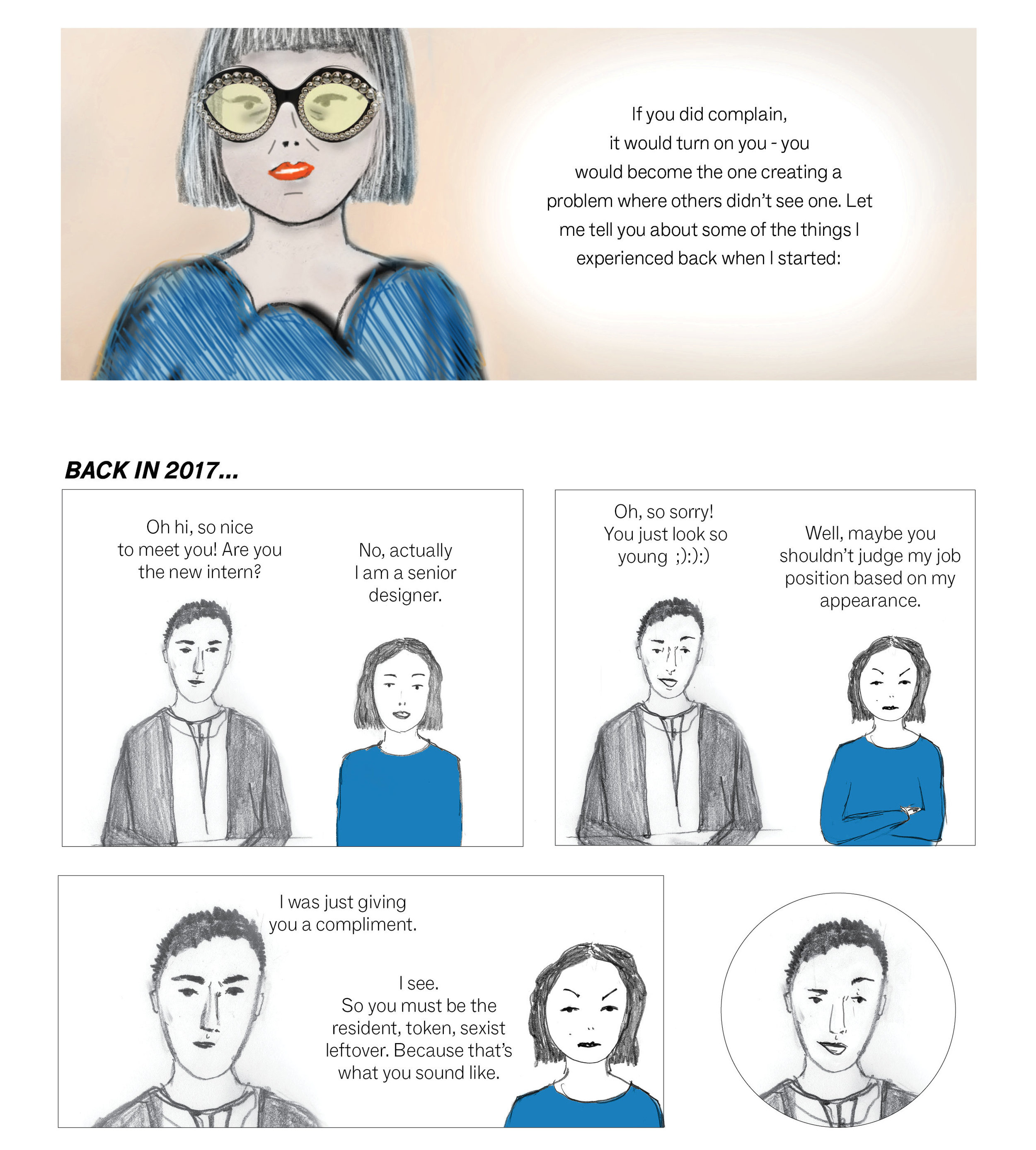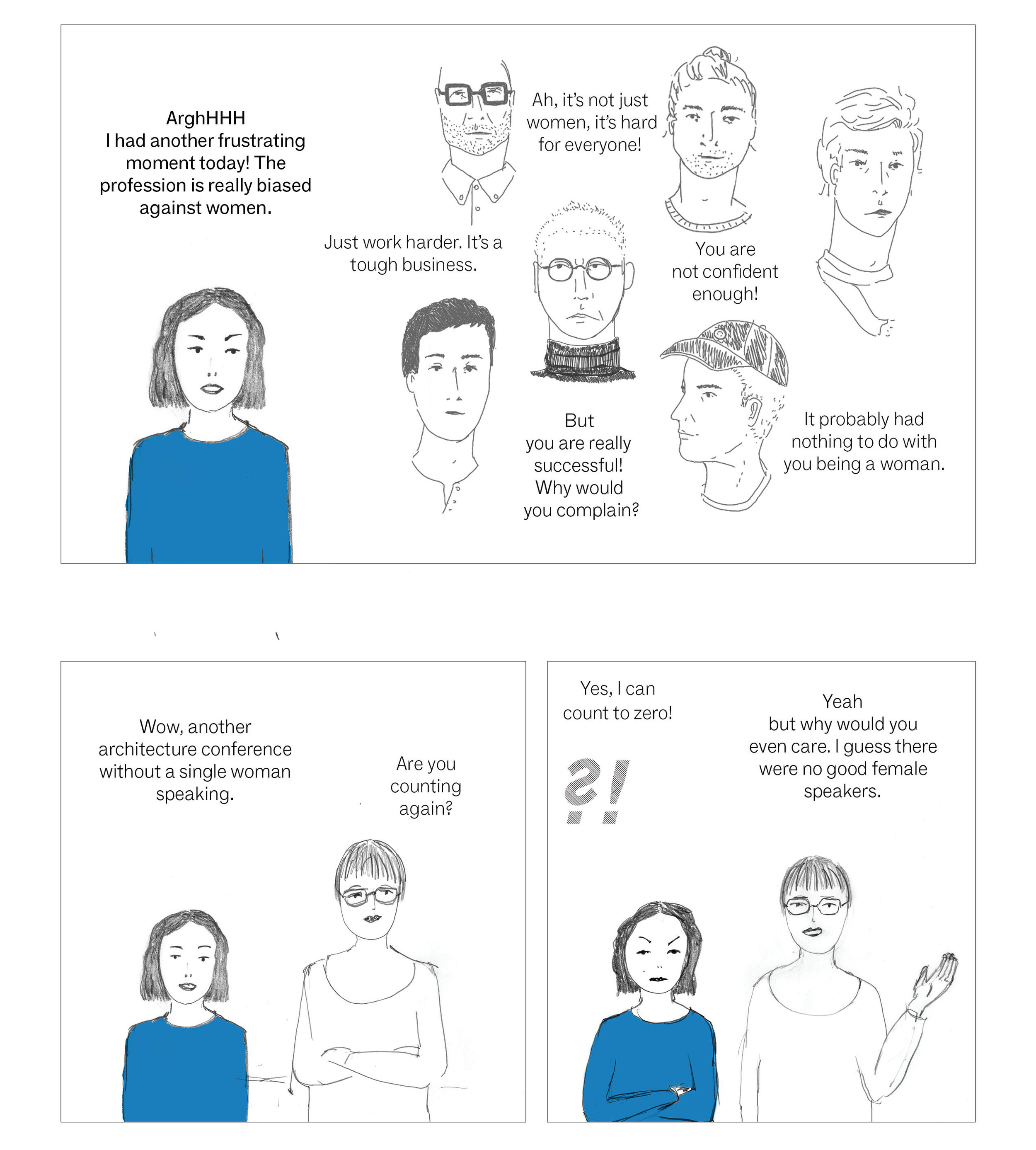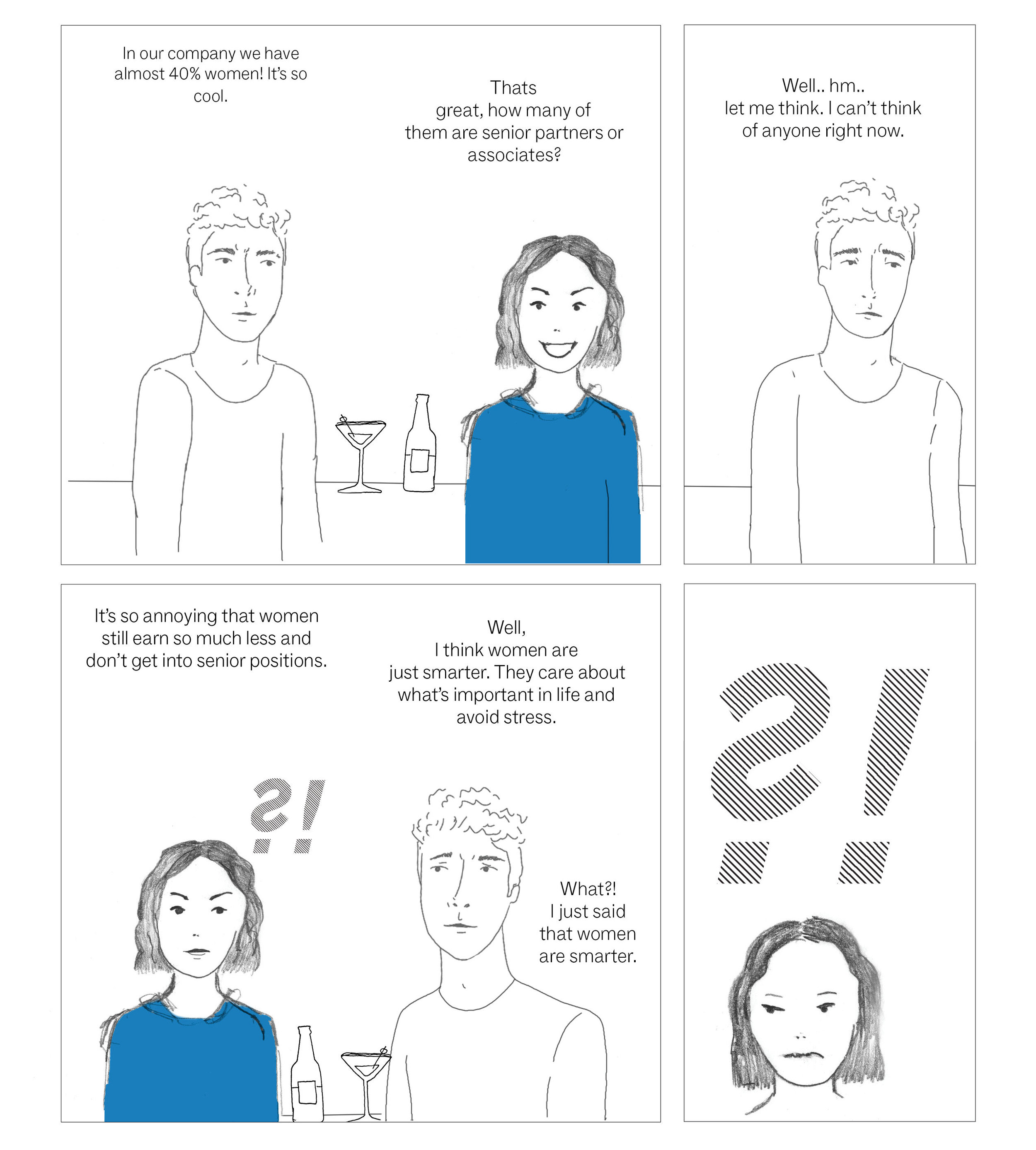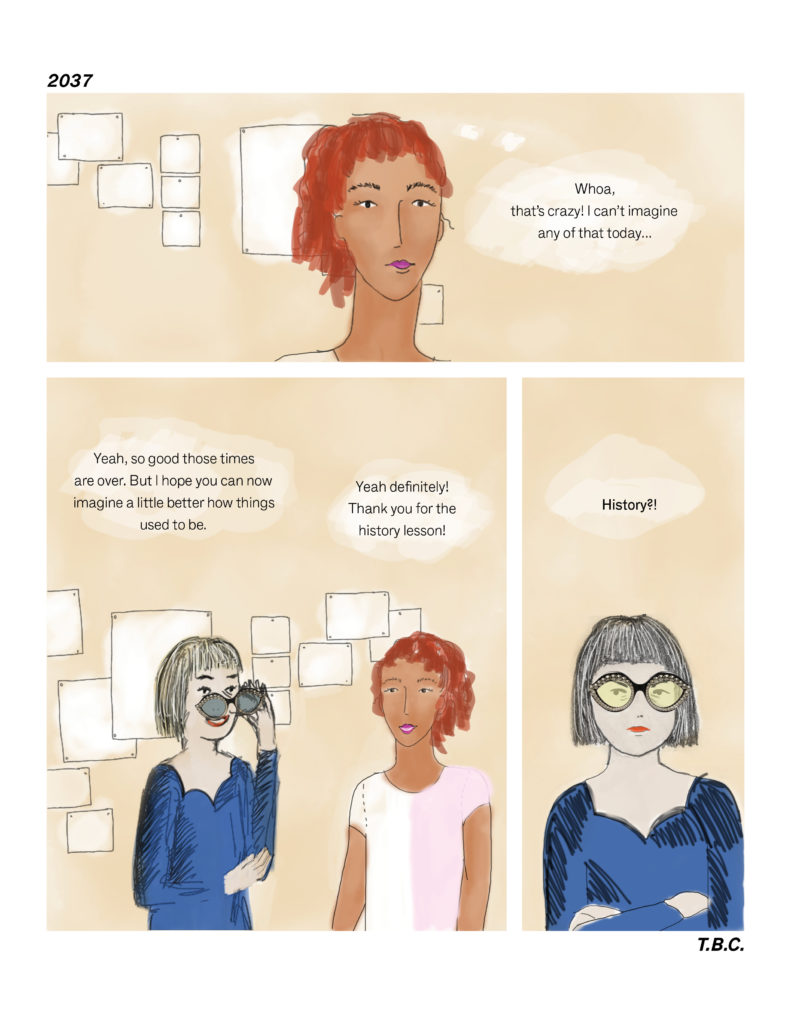A UTOPIAN FUTURIST FEMINIST ARCHICOMIXX
text and illustrations by Bika Rebekwith assistance from Marisa Musing
ON ARCHITECTURE AND COMIXX
This is the first comic book I have made in over a decade, and it is exciting to see how storytelling has changed through readily available tools today, between gifs, blogs, and the infinite scroll. Before I decided to study architecture I wanted to become a comic book artist, but when I was making my choice I was not aware of one thing that both professions have in common: they are male-dominated and become even more so as you near the top of the ladder. As a young girl I knew that men and women were treated differently, but I didn't feel that would ever affect me, since the message communicated to me by parents and schooling was always encouraging and optimistic: "As a girl, you are equal and you can do everything you want!! (Girl Power!!! Spice girls!! yay!!!)" So I was an empowered and nerdy teenager definitely not afraid of self-expression. That is, until I entered architecture school.
Suddenly the setting was very different from anything I had known before, and I did not have the tools to articulate what was wrong and even fewer to defend myself. Most of the professors and assistant teachers were men. There were some exceptions, but not enough to bend the generally sexist doctrine of the place. In my continuing academic and professional life I have repeatedly encountered instances of discrimination, both subtle and overt, with a noticeable flare up in these incidences since I started teaching and running my own company while still relatively young. Once I started to notice these judgments based on my gender and appearance, it seemed pervasive. Often comments would come from unexpected and unsuspecting sources, people who, self-righteously, would never see themselves as sexist. The kind of slight prejudice that is rarely recognized by those who articulate it but over time has a profound impact on women at work.
More than a personal throw-back, the graphic novel seems like a fitting medium to talk about these instances of soft discrimination for a number of reasons. The medium itself is traditionally a boys-only domain. Like in architecture, comic book artists were—and still are—by a large majority male. With recent stats hovering around 10% artists at major companies like Marvel or DC, the numbers are even lower than in architecture. Unsurprisingly the stories predominantly reflect male perspectives, which in turn perhaps attracts fewer women to the profession. Moreover, soft discrimination is notoriously difficult to describe. Since it is by definition subtle, it is best revealed in dialogue in combination with physical expressions. A text listing several situations could be cumbersome to read and fall into the eternal trap for women and minorities speaking up—it would too easily be dismissed as privileged complaining.
While the premise of my comic here assumes that women will achieve complete equality over the next two decades, I am not actually convinced that we will get there so fast. While the rights and status of women and minorities have improved considerably in the past decades, soft discrimination still presents a blind spot in the discussion on gender in the workplace, simply because it is so hard to grasp and so easy to dismiss. This little blog-comic is a way to address soft discrimination in a soft way: through the virtual, the hand-drawn and the funny rather than through the imposition of regulating measures. While lighthearted, it addresses issues I don't feel entirely comfortable talking about, ones that might be suppressed or fought in lonely uphill battles. I hope this comic book is a tiny stepping stone towards a moment when even these little, everyday instances of discrimination seem like a ridiculous and completely outmoded relic of the year 2017.
Bika is an architect aiming to make museum experiences more accessible and engaging to diverse audiences. Based in New York City and Vienna, she is a member at NEW INC, the first museum-led incubator, developing a practice focused on exhibition design and museum studies, and serves as an Adjunct Assistant Professor at Columbia GSAPP teaching Architectural Representation and a seminar on Exhibition Design.
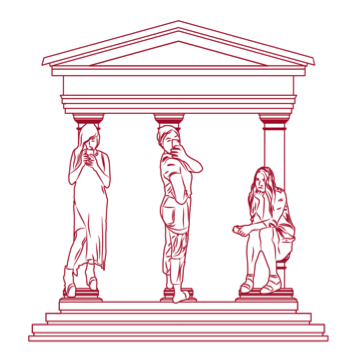
f-architecture (alt: feminist architecture collaborative) is a three-woman research enterprise aimed at disentangling the contemporary spatial politics and technological appearances of bodies, intimately and globally. Partners/caryatids/bffs Gabrielle Printz, Virginia Black and Rosana Elkhatib run their practice out of the GSAPP Incubator at NEW INC, an initiative of the New Museum.

